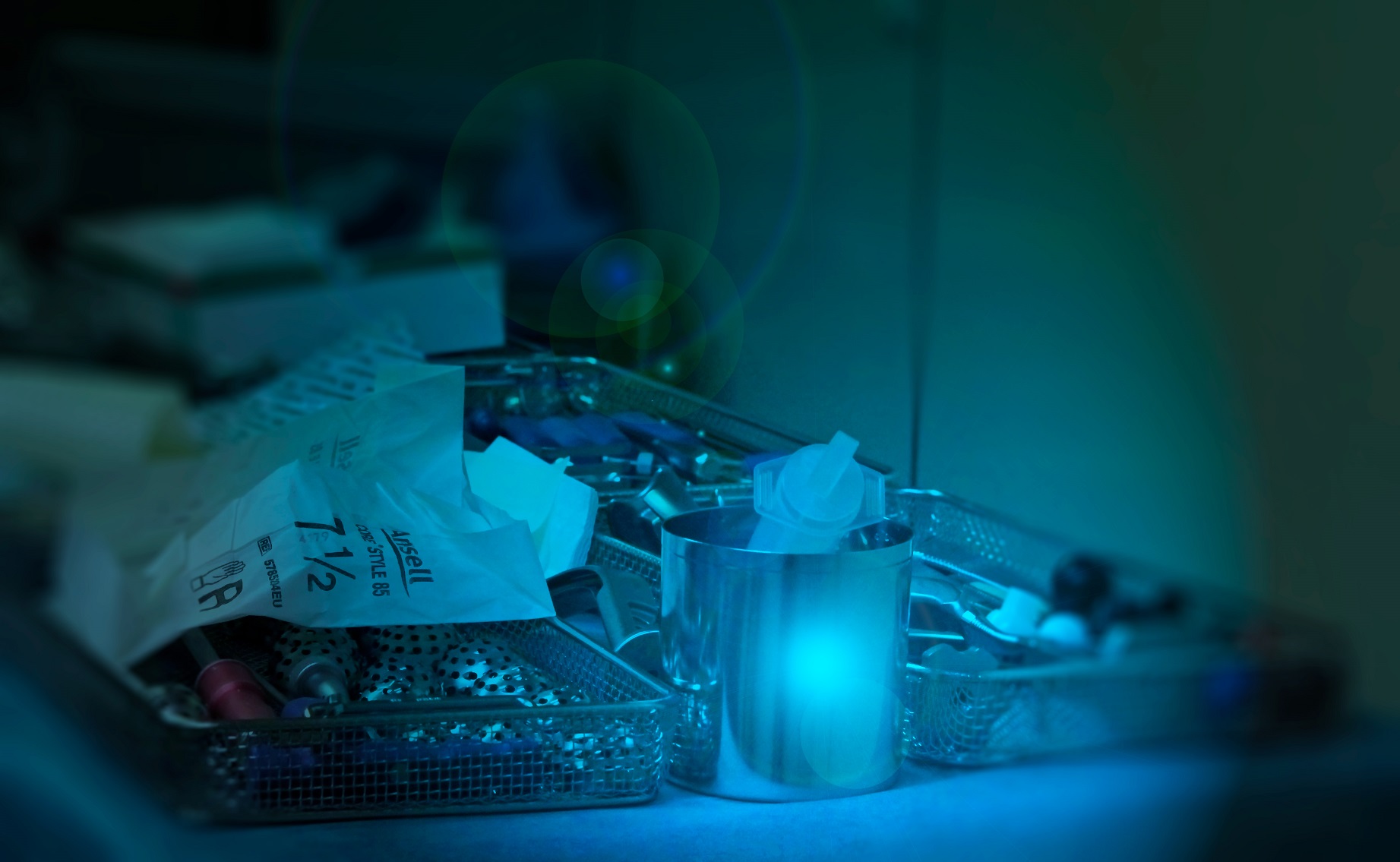Valuable Materials from Medical Products: A Second Life for Scalpel, Scissors and Co.
Fraunhofer IWKS and IRED Institute launch a cooperation platform to promote the recycling of medical products

So far, only a few medical devices are recycled in the sense of material recovery. The processes used so far are mostly based on purely thermal treatment in household waste incineration. The metallic residues are sorted into steel and non-ferrous metals only to a small extent. This means that only medical products with a high metal content can be partially returned to the economic cycle. Valuable raw materials are lost in the process.
The Fraunhofer Research Institution for Materials Recycling and Resource Strategies IWKS and the IRED Institute for Recycling, Ecology and Design are pooling their expertise in the recycling of medically used products and launching the new cooperation platform "Medical Product Recycling Initiative" (MePRI). The aim of the platform is to sensitize all stakeholders involved - from users such as hospitals, disposal logistics companies and recycling companies to decision-makers in politics. The platform serves as a basis for knowledge transfer and the collection of reliable data.
Up to now, Germany has not recorded exactly which types and quantities of medical products are produced with which recycling potential. In addition, there is a lack of clear legal framework conditions. For example, regulations on health and safety at work conflict with the Recycling Management Act and the Commercial Waste Ordinance.
IRED and Fraunhofer IWKS have already developed a process for the high-quality recycling of disposable surgical instruments. Based on this know-how, the platform will create new approaches to extend this to other medical products, e.g. implants, endoscopes and electrophysiological devices. Both institutes not only contribute their experience, data and equipment, but also cover various aspects of recycling: from analysis and sorting to the re-design of medical products to optimize recycling.
In order to fill the platform with life and develop the prerequisites for material recycling, Fraunhofer IWKS and IRED are implementing the following measures:
- Identifying the stakeholders. Cooperation with stakeholders from the fields of hospital supply, hospital management, logistics & waste management and recycling research.
- Recording and evaluation of the specific "clinical" waste materials within the framework of existing disposal and recycling structures.
- Development of economic disposal concepts with the participation of formal waste producers and recycling partners.
- Involvement of the authorities responsible for approval. Possible adaptation of national waste, occupational health and safety regulations to promote recycling management processes in legislation and at the administrative level (implementing ordinances).
- Establishment of a collection system that is sustainable in terms of logistics and covers all materials, products and manufacturers (recycling garbage can "hospital") and fulfils the requirements of occupational health and safety.
A survey for data collection at hospitals has already been started. For further information and if you are interested in actively participating in the development of the recycling platform, the initiators are available as contact persons.
Scientific contact:
Dr. Sven Grieger
Fraunhofer Research Institution for Materials Recycling and Resource Strategies IWKS
Phone +49 6023 32039-839
sven.grieger@iwks.fraunhofer.de
Prof. Werner Lorke
IRED Institute for Recycling, Ecology and Design
Phone +49 69 70 10 19
lorke@ired-institute.com